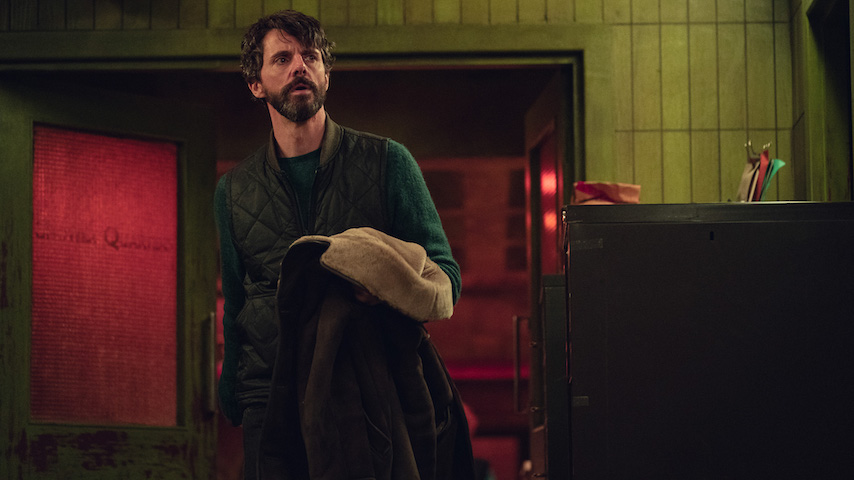Netflix's prickly-cop drama Dept. Q shows promise
Matthew Goode plays a Scottish detective with PTSD in Scott Frank's latest series.
Photo: Jamie Simpson/Netflix
On paper, it’d be easy to call Dept. Q, the latest show from Scott Frank (The Queen’s Gambit, Monsieur Spade), Netflix’s stab at Slow Horses: Both series are anchored by unkempt pricks (in Q‘s case, detective Carl Morck, played by Downton Abbey‘s Matthew Goode) whose unpleasantness, smarts, and anti-authoritarian streaks precede them. Both follow an odd mishmash of an investigative team that operates from a dank, discarded office that feels miles away and decades removed from whatever’s going on at headquarters. Both are well-cast, with this new show boasting outside-the-core-crew turns by Scottish actors like Game Of Thrones‘ Kate Dickie (who’s very good here), Boardwalk Empire‘s Kelly Macdonald, and 24 Hour Party People‘s Shirley Henderson. Both, too, have a wealth of source material to base future seasons around (in this Netflix show’s instance, 10 Nordic-noir novels by Jussi Adler-Olsen, which have already been adapted into several Danish films). Hell, even both intros start with electric-guitar strums and silhouettes of its lead cranks.
But despite all of that and a similar ball-busting comic sensibility, the experience of watching Dept. Q feels quite different than watching that consistently great and taut British thriller. The stakes feel much lower here, with this season focusing on one cold case from four years back, not, say, a plane filled with explosives that is set to take out thousands of people in London. And while Q can get very bloody (there are graphic stabbings and one head is blown off late in the game), it doesn’t feel nearly as action-packed or like our investigators are racing against the clock to save a sizable chunk of a city. It also leans a bit into sentimentality, at least in its bloated, 71-minute season finale, that Jackson Lamb wouldn’t stomach for a second.
But there is plenty to like, comparisons be damned. Dept. Q‘s opening sequence, for one, is fantastic, kicking off with body-cam footage of Morck giving shit to a green cop at a crime scene—only for a gunman to pop out and off the rookie, partially paralyze the detective’s partner (Jamie Sives’ DS Hardy), and shoot a bullet through our main character’s throat. And a series like this, clicking and having legs really depends—more than the case it’s investigating and the conspiratorial twists and turns that it unfurls—on the chemistry between its investigators, on whether those contrasting personalities can sustain your interest or amusement over several hours. (Think of the chord Olivia Colman and David Tennant’s characters struck in Broadchurch‘s first season.)